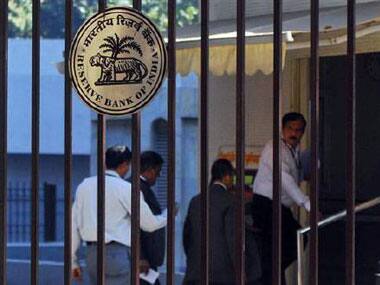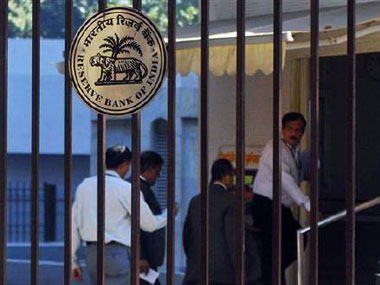The Reserve Bank of India (RBI) raised interest rates by a higher-than-expected 50 basis points on Tuesday, stepping up its fight against persistently high inflation despite slowing growth in Asia’s third-largest economy. The RBI increased the repo rate, at which it lends to banks, to 8 percent, exceeding market expectations that it would raise rates by 25 basis points.
The rate increase is its 11th since March 2010, making the RBI one of the most aggressive inflation fighters among central banks.
Reactions from economists:
Vishnu Varathan, Economist, Capital Economics, Singapore:
“A surprisingly hawkish move, considering the external risks and slowing growth.” Nonetheless, he feels this is a sincere attempt to cover lost ground on slippage in fiscal consolidation.
“To some extent, the RBI can also be seen compensating slippage on fiscal consolidation. The overarching thing here is that the RBI remains very wary of a wage-price spiral risk, given that wage gains have been strong, and more worryingly certain surveys indicate that wage expectations are being driven by inflation. So, snapping such inflation expectations appears to be the central strategy.”
“There may also be some sense in front-loading this move, despite its negative impact on borrowers as it also means that the RBI has a lot of dry gunpowder left to react if global economic risks become enlarged and transmit shocks to the Indian economy.”
“There is a distinct likelihood that the interest profile for India could be raised in coming months, and to some extent depending on the severity of the pass-through from fuel price hikes.”
[caption id=“attachment_48438” align=“alignleft” width=“380” caption=“The rate increase is its 11th since March 2010, making the RBI one of the most aggressive inflation fighters among central banks. Reuters”]
 [/caption]
[/caption]
Radhika Rao, Economist, Forecast PTE, Singapore:
“The RBI provided the ‘shock-factor’ by raising the repo rate by bigger-than-expected 50 bps. Sensex lost ground soon after the decision, briefly sending USD/INR lower.”
“Post-decision, comments signal little change in the central bank’s hawkish leaning and will prod the markets to factor in more hikes before end of the year. We expect rates to remain on uptrend until clear signs of fiscal prudence accompanied by slip in the headline WPI to sub-8 percent region, which is unlikely to occur before next year.”
Rupa Rege Nitsure, Chief Economist, Bank of Baroda, Mumbai:
“It requires tremendous courage and strength of conviction to take the aggressive but most relevant policy action despite mounting pressures from different lobbies and vested interests. Today’s RBI action is a reflection of the fact that they consider chronic inflation as the real enemy of growth and not the elevated interest rates.”
“I expect them to continue with a tightening bias till inflation starts showing signs of coming close to 7 percent. Today’s rate action will lead to a strong transmission as I expect many banks to increase lending rates, so how many more rate hikes are necessary cannot be said at this point.”
Ramya Suryanarayanan, Economist at DBS Bank, Singapore:
“Quite a surprise. Clearly, they are quite worried about inflation and the risk is they don’t stop with this rate hike. Our rate forecast is under review - we had forecast 8 percent on the repo rate as the peak by end-October 2011.”
“We think further rate hikes are going to slow growth considerably, below the RBI’s forecast of 8 percent. Our forecast is 7.5 percent and such persistent rate hikes point to further downside risk to growth.”
STORY CONTINUES BELOW THIS AD
Sean Callow, Senior Currency Strategist, Westpac Institutional Bank, Sydney:
“Definitely more aggressive than we expected, given some mixed data recently. The RBI has been criticised for being behind the curve so this move will go some way to rebuffing such views. We had been looking for the repo rate to peak at 8 percent and will now review whether there needs to be yet more tightening in coming months.”
Gaurav Kapur, Senior Economist, RBS, Mumbai:
“The 50 bps rate hike comes in as a bit of a surprise, but the message is very clear from the RBI - the upside risks of higher inflation far outweigh downside risks to growth and therefore the focus remains tackling inflation.”
“The central bank is of the view that reasonably strong demand conditions are supporting core inflation and even food inflation can spiral again. Moreover, the risks from rising oil prices remain intact.”
STORY CONTINUES BELOW THIS AD“Raising the policy rate by an extra 25 bps, is clearly a pre-emptive step to bring inflation down to 7 percent by March 2012. Considering that the policy rate has been raised by 5 percent now since the RBI started tightening and the swift monetary transmission into higher lending and deposit rates, the probability of a pause in the rate hike cycle is growing.”
Madan Sabnavis, Chief Economist, CARE Ratings, Mumbai:
“The RBI has definitely been more aggressive than what market expected. The critical factors now are manufactured goods inflation and the harvest in October.”
“If manufactured goods inflation continues to remain sticky we should not be surprised if there is a rate hike in September. Also, the harvest in October will tell us how food inflation will pan out.”
STORY CONTINUES BELOW THIS AD“In a worst case scenario, we are looking at rate hike of another 50 basis points in the current fiscal year.”
Sujan Hazra, Chief Economist, Anand Rathi Securities, Mumbai:
“After today’s rate action, I think, the central bank is now likely to pause on rates for rest of the current fiscal year. This is because there are some signs of slowdown in growth and incremental data is likely to show more softening of growth. Also, inflation is most likely to soften after September.
“But, obviously, if inflation stays stubborn, the RBI may be forced to act on rates.”
Siddhartha Sanyal, Chief Economist India, Barclays Capital, Mumbai:
“It is way above our expectation and has a very hawkish stance. While 7 percent inflation looks achievable, 8 percent growth target for FY12 looks challenging.”
Reuters
For reactions from companies click here . And for the banking sector here.
Want to know which stocks fell the most? Click here
)